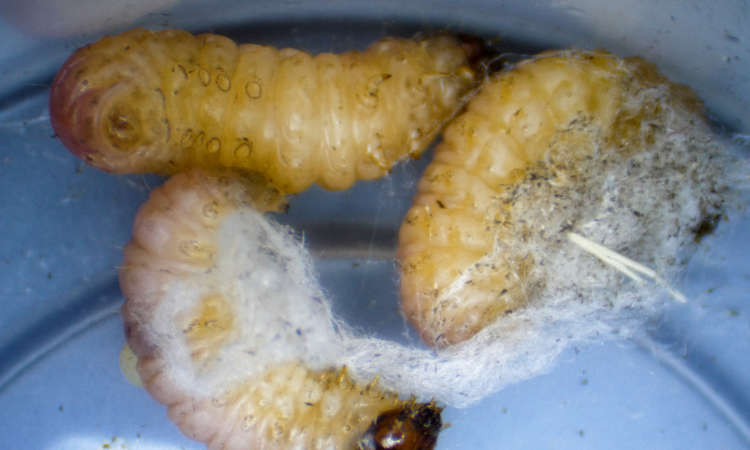February 2025 - Dormant winter apple orchards look quiet, but this season is actually a key time for research, helping growers improve fruit production and tackle challenges before the next growing cycle begins.
A major focus during the off-season is research, particularly projects that tackle issues within the orchard environment. The Washington Tree Fruit Research Commission, funded by grower contributions, supports scientific studies that enhance orchard management. These funds empower researchers, scientists, and agricultural extension specialists to develop innovative strategies for overcoming industry challenges, from pest and disease management to technological advancements, orchard development, and post-harvest practices.

The Washington State University (WSU) Wenatchee based Tree Fruit Research & Extension Center
One of the most persistent challenges in apple production is codling moth, a notorious pest that has troubled growers for many years and are responsible for the “worm in the apples” problem. Over the years, numerous control methods have been explored—some more effective than others—but the search for sustainable solutions continues.

Codling moth larvae sit in a petri dish at the research center.
One of our research methods involves wrapping corrugated cardboard around a tree trunk, mimicking the natural crevices where codling moth larvae seek shelter for the winter. These bands are then collected and analyzed. So far, this has led to an interesting discovery: certain naturally occurring fungi may provide an effective biological method of controlling this pest.

Extracting larvae from cardboard after wrapping it around the base of trees, as Dave explains in Orchard Update.
Scientists have identified three types of fungi that appear to target codling moth larvae. Current research is focused on isolating, refining, and testing these fungi to determine their potential as a biological control method. Since these fungi already exist in nature, the goal is to develop them into a commercially viable, sustainable alternative to traditional pest control solutions. If successful, this method could provide growers with an eco-friendly, natural approach to managing codling moth populations while reducing the need for chemical treatments.

Fungus filled petri dishes at WSU research center.
Through continued investment in research, the apple industry remains committed to innovation, sustainability, and the development of science-backed solutions that improve orchard efficiency and fruit quality. As scientists and growers work together, the future of apple production looks brighter than ever.

Dave Gleason of Superfresh Growers and Rob Curtiss of Washington State University.






